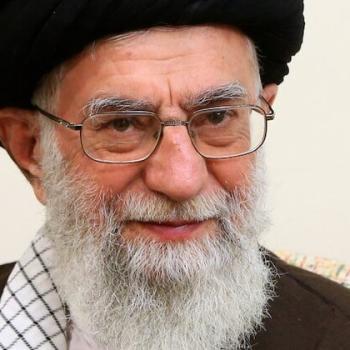Senator Dick Durbin of Illinois convened a Senate hearing on hate crimes and the potential threat of domestic extremism this week as a response to the most recent attacks on those from the Dharmic community who are most easily identified as "the other." The Hindu American Foundation was one of over 150 religious and civil rights organizations that called for the hearing, and submitted testimony. The Senate Judiciary subcommittee invited Sikhs to testify, and Harpreet Singh Saini, son of a victim of the Oak Creek Sikh massacre, said, "We cannot solve a problem we refuse to recognize." My guest commentary appeared in the Detroit Free Press on the day of the hearing, but here is the original reflection I wrote on the universal importance and relevance of this issue:
How do we create goodness out of devastating loss? I am pleased that the U.S. Senate will be holding a hearing on hate crimes and domestic hate groups. Unfortunately, it stems from the tragic massacre last month in Oak Creek, WI. What we need to recognize is that the hearing, and the threat of hate violence, affects all of us. As my friend Raman Singh from the Sikh Coalition said, "we need to get out of the 'Sikhs aren't Muslims' mindset and focus on something that affects all Americans: hate crimes."
Growing up in Long Island in the '70s, I was raised to wear a bindi as most traditional Hindus do. In junior high school, I was so disappointed when my first "crush" called me "dot-head." Fast-forward to the late '80s, when I was a grad student in the era of "Dot Busters." A young man yelled "dot head!" while I was walking in the mall, which prompted me to be selective, perhaps scared, about when and where I wear my bindi. My high school children are now used to seeing me put my sticker on the steering wheel, and my husband grumbles about the sticky residue left by these modern versions of a symbol sacred to the Hindu community. I just enjoy the fact that I can explain to visitors at the local temple and audiences when I serve as a panelist in interfaith settings, why the bindi is so important—symbolic of the third eye, the one that helps us to look inside at who we are. The fear I once experienced has now turned into a means to educate, and I am glad that I have a chance to speak about the reason for my acculturation.
My Dharmic brothers from the Sikh community cannot switch so easily between cultures, and have been objects of hate crimes that don't just denigrate, but take lives. I have written recently about moving beyond intolerance, moving beyond hate. There are stories like this throughout our shared American history: Japanese Americans held in internment camps; nooses hung to remind people that we are not that distant from the Civil Rights era; a Chinese American beaten to death with a baseball bat in metro Detroit during the height of layoffs in the American automotive industry when it faced competition from Japanese automakers; pigs' heads used to taunt Arab Americans at a cultural festival; Sikhs murdered in their own house of worship.
Drawing from the statement issued about the Wisconsin tragedy by the Hindu American Foundation where I serve as an Executive Council member, "the Dharma traditions—the Sikhs, Buddhists, Jains and Hindus—hold non-violence and peaceful co-existence as paramount values." This hearing is not just for the Sikh community, but all communities who want to live, work, and worship in America without fear. As I said earlier this year while welcoming everyone to the City of Troy's annual Martin Luther King Jr. Day celebration, we have a vision of a beloved community, and must strive toward it. We each have a contribution to make in achieving this vision. Our civic responsibilities do not end with the Senate hearing. Rather, this serves as an opportunity for all people to engage with one another, examine the hate and extremism within our own society, and implement solutions to end the history of tragedies like the one in Oak Creek.
12/2/2022 9:08:54 PM





